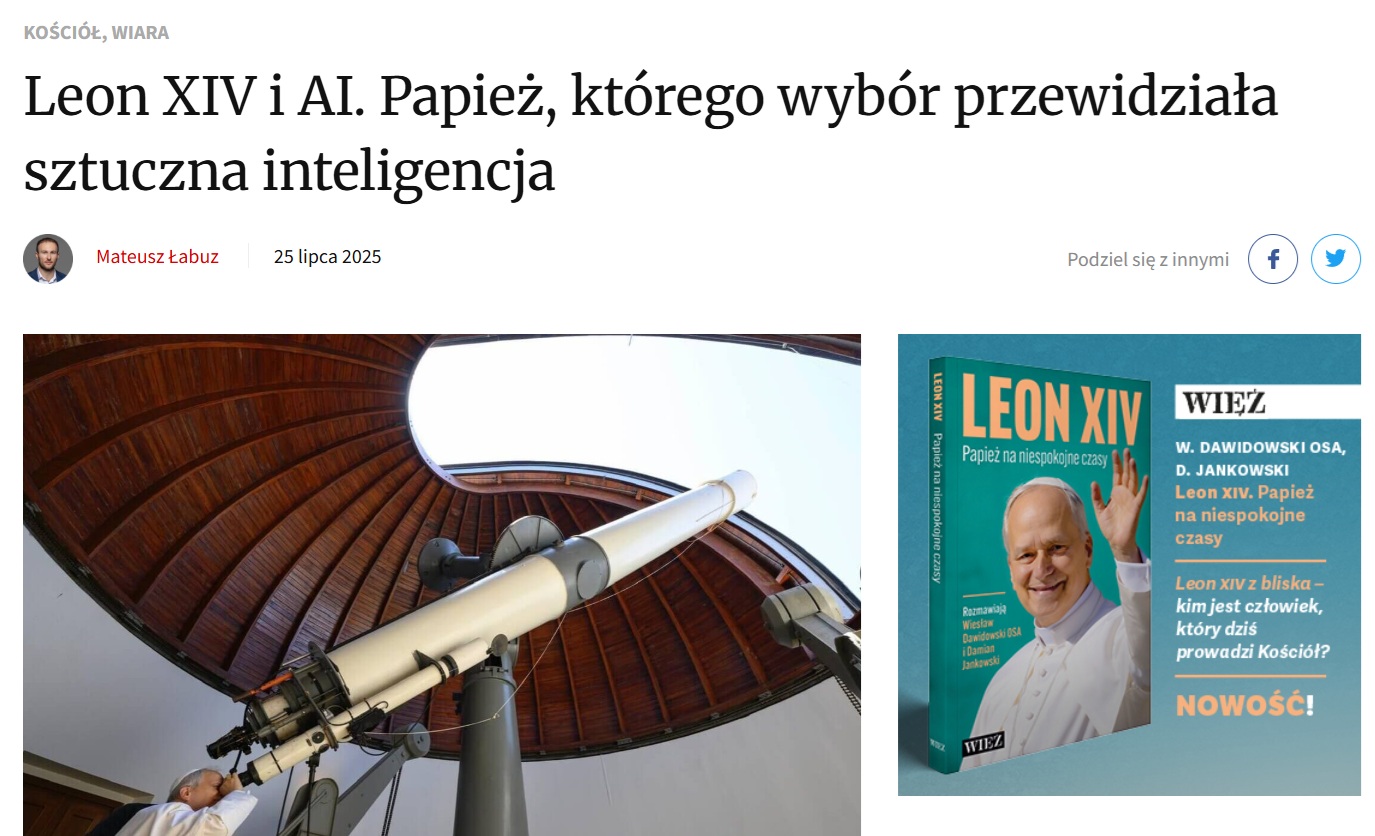Mateusz’s OpEd on why Leo XIV chose his name and the influence of AI-(r)evolution on Catholic Church was published by the Polish newspaper “Więź”. As it is written in Polish, a couple of interesting facts:
During the inaugural meeting with the College of Cardinals, speaking about the reasons for choosing the name, the Pope recalled the legacy of Leo XIII and clearly pointed to one of the key problems of the modern world to which the Church must find an answer: “There are different reasons for this, but mainly because Pope Leo XIII in his historic Encyclical Rerum Novarum addressed the social question in the context of the first great industrial revolution. In our own day, the Church offers to everyone the treasury of her social teaching in response to another industrial revolution and to developments in the field of artificial intelligence that pose new challenges for the defence of human dignity, justice and labour”.
Researchers from Bocconi University in Milan, using network science and machine learning, conducted an experiment aimed at predicting conclave outcomes. They analyzed not only data on the cardinals’ careers but also their affiliations with key dicasteries, previous appointments, influence within various factions, and personal networks. Artificial intelligence identified Robert Prevost as one of the most serious candidates, despite his name being barely mentioned in the media. The study’s findings suggest that decisions made behind the closed doors of the Sistine Chapel are becoming increasingly amenable to analysis and modeling – and may not be as mysterious in the future.
The Church must play a significant role in this debate and utilize its comprehensive social and political influence to promote the development of ethical technologies that serve human dignity. This requires a significant strengthening of competences and a proactive approach to Church structures themselves, which are not free from prejudices and stereotypes – something that artificial intelligence algorithms are accused of.
The generation of cardinals that elected Robert Prevost as pope was formed in an era before the digital revolution. Subsequent generations are raised and will be raised – including spiritually – in a completely different world.
Due to their online activity, cardinals can become direct targets of disinformation campaigns aimed at changing worldviews. Such a well-executed influence campaign can even increase a cardinal’s chances of being elected. It wouldn’t surprise me if some countries are already working to operationalize this type of opportunity to manipulate the election of a future pope.
Artificial intelligence won’t elect the pope. But it can help shape him: shape the ideas he supports and identify the crises he prioritizes.
You might find the article here.
Photo credits: Więź

